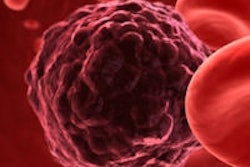Dear Oral Cancer & Diagnostics Insider,
After having a third of her tongue removed and enduring six weeks of daily radiation to her head and neck to treat her stage IV oral squamous cell carcinoma, Eva Grayzel had had enough.
Our latest Insider Exclusive describes how difficult it was for her to obtain an accurate diagnosis of her disease, and the physical and emotional toll the months of radiation and other treatments took on her and her family after she was finally diagnosed.
In other Oral Cancer & Diagnostics Community news, as the incidence of oral cancer cases increases, researchers are looking for better ways to treat the disease and the debilitating side effects of surgery and radiation treatments. Now, clinical researcher Ron Karni, MD, and colleagues at the University of Texas Medical School at Houston have come up with a way to visualize how the lymphatic system is affected in head and neck cancer (HNC) patients by using high-tech equipment often used in warfare. Click here to read about their clinical trial, which could help improve patients' quality of life following treatment.
Meanwhile, the human papillomavirus (HPV) vaccine has been shown to be effective against cervical cancers. Now, a new study in PLOS One suggests that it also affords strong protection against certain oral HPV infections. Read about how it also can reduce the risk of HPV-related oral cancers.
In a related story, HPV has been increasingly linked to oral and head and neck cancers, in addition to causing cervical, anal, and genital cancers. Click here to read about a PLOS One study that examines how HPV increases the risk of specific oral cancers and its implications for vaccination programs around the world.
And since patients with oral cavity squamous cell carcinoma have a high rate of locoregional recurrence, adjuvant radiotherapy or chemotherapy is often recommended. Click here to read about an online tool that helps physicians decide which patients will benefit most from such therapy.
In other clinical research news, the long-term physical effects of radiation therapy for HNC have been well-described. Now, California researchers have examined psychosocial functioning, including depression, among patients. Read about their findings in this new study in JAMA Otolaryngology -- Head & Neck Surgery.
Meanwhile, researchers have come up with an innovative treatment that targets cancer cells and may improve treatment for colorectal carcinoma and HNC, according to a new study in Radiotherapy & Oncology. Read how exposing cancer cells to a common virus could help patients.
Finally, Ohio researchers have discovered how a common oral bacterium can contribute to colorectal cancer. Read how the microorganism can attach itself to colon cells and trigger a cascade of changes that can lead to cancer.



















